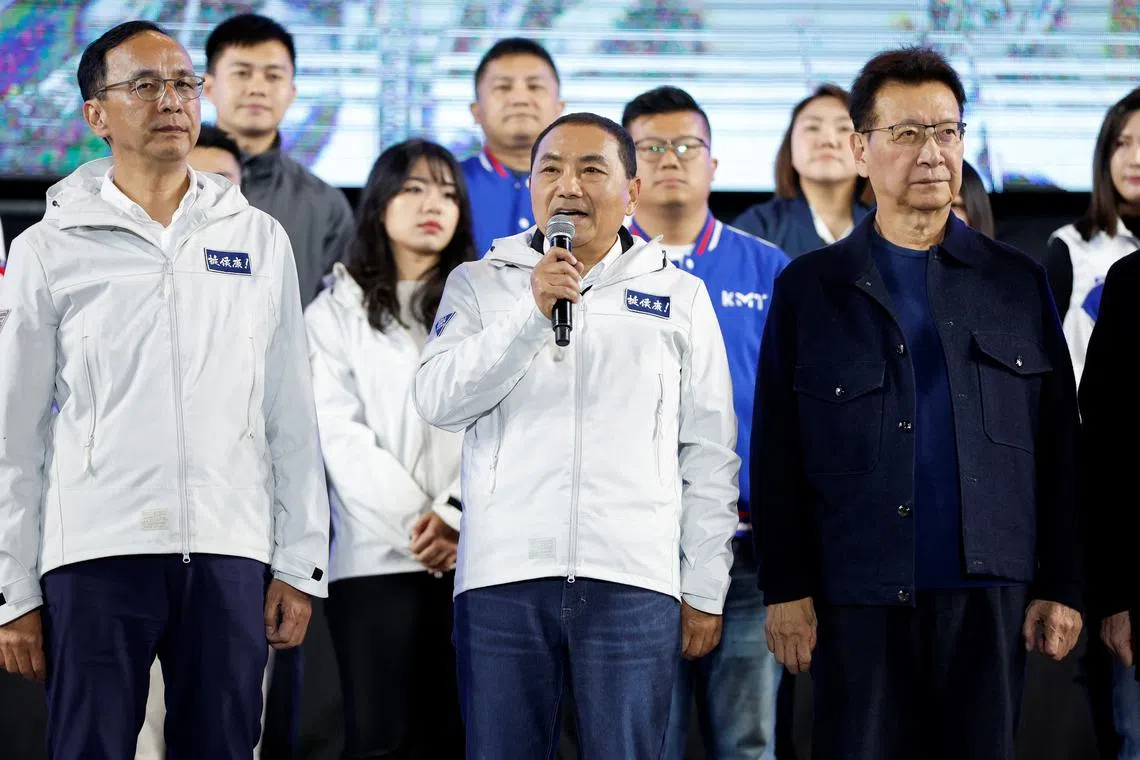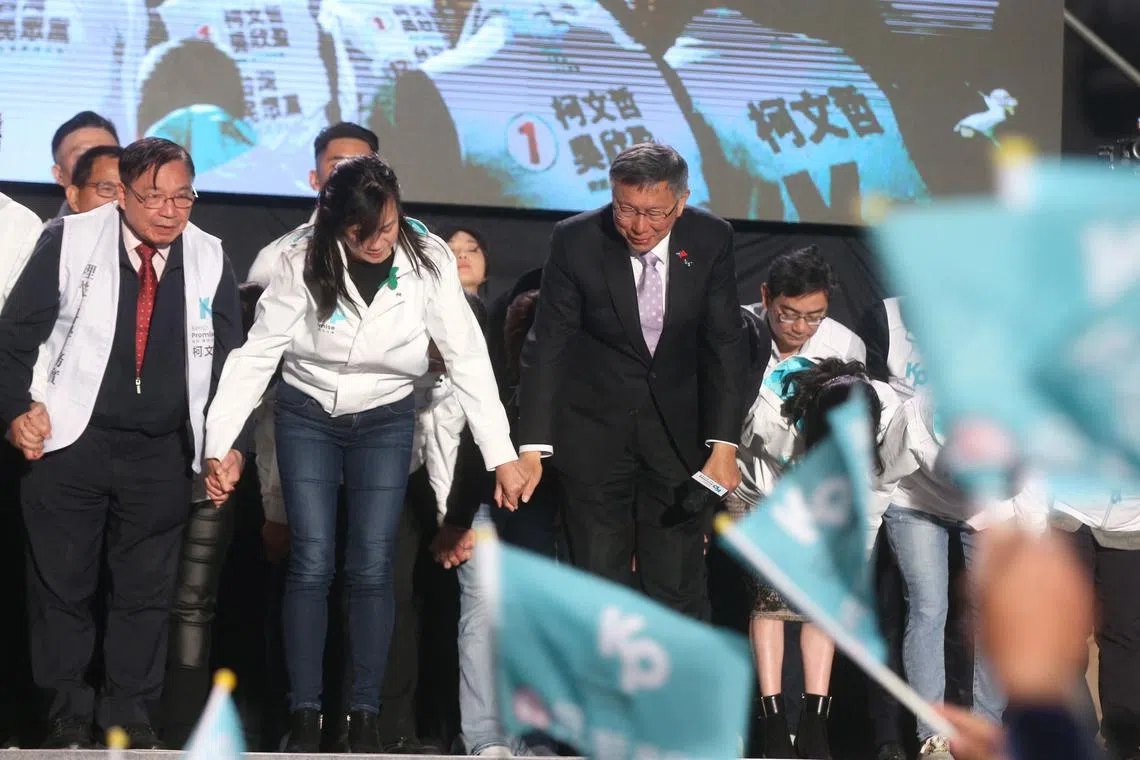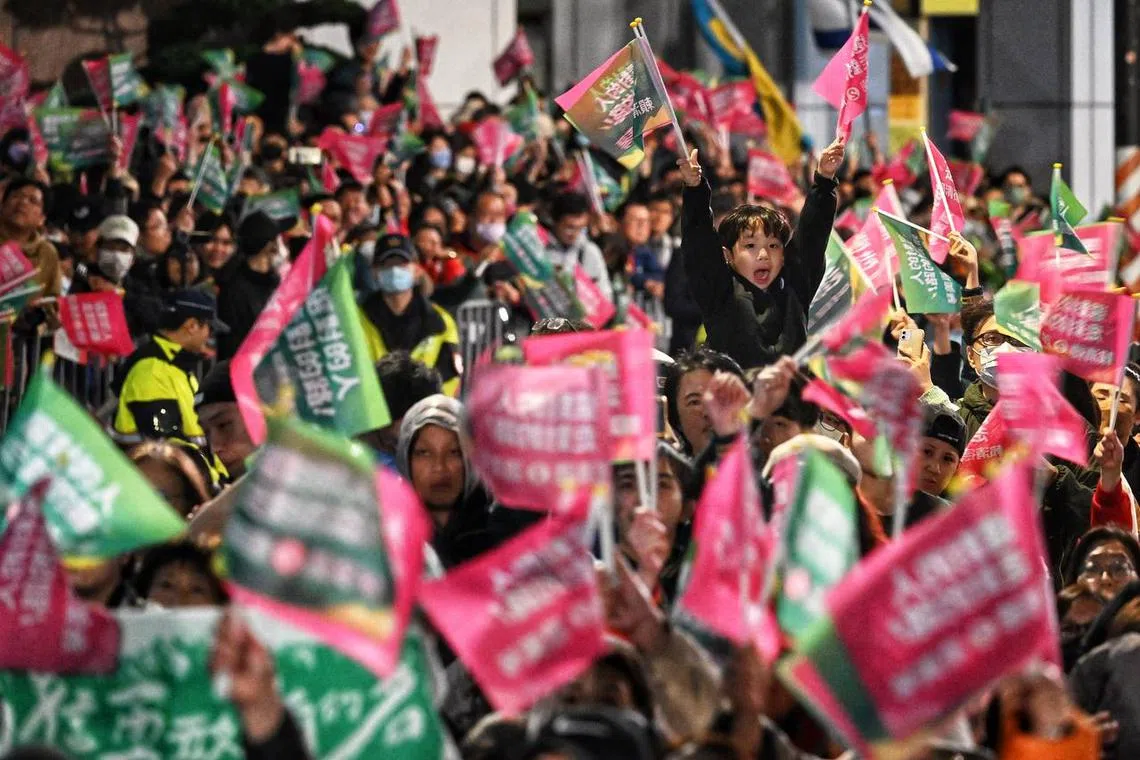Taiwan president-elect Lai Ching-te calls for dialogue with China to ‘replace confrontation’
Sign up now: Get insights on Asia's fast-moving developments
TAIPEI – Taiwan’s president-elect Lai Ching-te, of the independence-leaning Democratic Progressive Party (DPP), called for dialogue with China “to replace confrontation”, shortly after winning 40 per cent of the votes in a three-way race for president on Jan 13.
However, he warned that Taiwan must also be safeguarded against threats from China.
Addressing supporters following his declaration of victory at 8.30pm, Mr Lai pledged to maintain the “cross-strait status quo”.
“We will use exchanges to replace obstructionism, dialogue to replace confrontation and confidently pursue exchanges and cooperation with China.”
It remains to be seen how Mr Lai will approach dialogue with China, as he has not made clear the basis on which it can proceed. This is a sticking point with China, which insists that exchanges can happen only if both sides agree that there is one China.
Mr Lai, 64, headed into the race as the front runner, though recent polls had shown it too close to call, with many Taiwanese frustrated with economic issues including stagnant wages and housing affordability.
Mr Hou Yu-ih Dr Ko Wen-je
The candidates who lost were seen to be friendlier towards Beijing. Both had blamed the DPP for deteriorating cross-strait ties, and had pledged to foster closer economic ties with China.
On the other hand, Mr Lai, whose party champions a distinct Taiwan identity, was repeatedly singled out by China as a dangerous separatist and “troublemaker”.
Mr Lai said: “We are also determined to safeguard Taiwan from continuing threats and intimidation from China.”
Results showed that he secured about 40 per cent of the votes, while Mr Hou gained around 33 per cent and Dr Ko, about 26 per cent. Voter turnout was nearly 70 per cent.
But Mr Lai’s vote share was less than that of incumbent President Tsai Ing-wen, also of the DPP, in her first presidential contest in 2016, which was also a three-way race.
She garnered 56.1 per cent, as opposed to KMT’s Eric Chu’s 31 per cent, and 12.8 per cent for Mr James Soong of the People First Party.
Preliminary analysis suggests that Dr Ko had made some inroads with young Taiwanese weary of the two main parties.
Commenting on Mr Lai’s electoral victory, China said that the result of the election shows that DPP cannot represent the mainstream sentiments of voters on the island. “Taiwan is China’s Taiwan,” it said.
The vote “will not impede the inevitable trend of China’s reunification”, Beijing’s Taiwan Affairs Office spokesperson Chen Binhua said in a statement carried by state news agency Xinhua.
Beijing also said it would not tolerate “separatist activities” in Taiwan. “We will adhere to the 1992 Consensus that embodies the one-China principle and firmly oppose the separatist activities aimed at ‘Taiwan independence’ as well as foreign interference.”
Conceding defeat at a KMT event to thank voters in New Taipei City, Mr Hou said: “I have let everybody down, I want to convey my apology.”

Kuomintang’s Hou Yu-ih (centre) speaking on stage next to his running mate Jaw Shaw-kong (right), after conceding defeat, in New Taipei City on Jan 13.
PHOTO: REUTERS
He congratulated Mr Lai and Ms Hsiao Bi-khim
On his part, Dr Ko thanked the youth voters who backed him.
“We have shown to the world that Taiwan is not just about the Green or Blue camp. Democracy is Taiwan’s most valuable asset,” he said, referring to the party colours of DPP and KMT respectively.

Taiwan People’s Party’s Ko Wen-je (centre) and his running mate Cynthia Wu bowing to supporters after conceding defeat at the party’s headquarters in New Taipei City on Jan 13.
PHOTO: AFP
Mr Lai’s win means that the DPP has secured an unprecedented third presidential term.
No political party has won more than two consecutive four-year terms since presidential elections were introduced in 1996.
However, the DPP failed to maintain its legislative majority in the parliamentary elections held at the same time, which will limit the president-elect’s ability to pass major reforms.
In fact, none of the main parties secured a majority in the 113-seat legislature.
The KMT took 52 seats, the DPP 51, the TPP eight, while two went to independents.

Supporters cheering at the Democratic Progressive Party rally on election night in Taipei on Jan 13.
ST PHOTO: CHONG JUN LIANG
In his post-victory speech, Mr Lai said he understood and respected the people’s expectations of effective government with strong checks and balances.
He pledged to embrace talent from different political groups, prioritising issues that have consensus among the political parties, without providing specifics.
“We will work to set aside differences while maintaining clear lines of communication,” he said.
At the DPP’s victory rally held outside the party’s headquarters in Taipei, thousands of euphoric supporters started chanting “Hello, president” when it became clear Mr Lai would win.
Restaurant manager Kuo Ying-kuei, 37, donning the campaign’s official green baseball jacket, told The Straits Times that she can now heave a sigh of relief.
“When I saw footage of the huge turnout at the TPP rally on the eve of the election, I was really worried for Lai’s chances. I can rest easy now that we have a leader who will do his best to protect our precious freedoms.”



